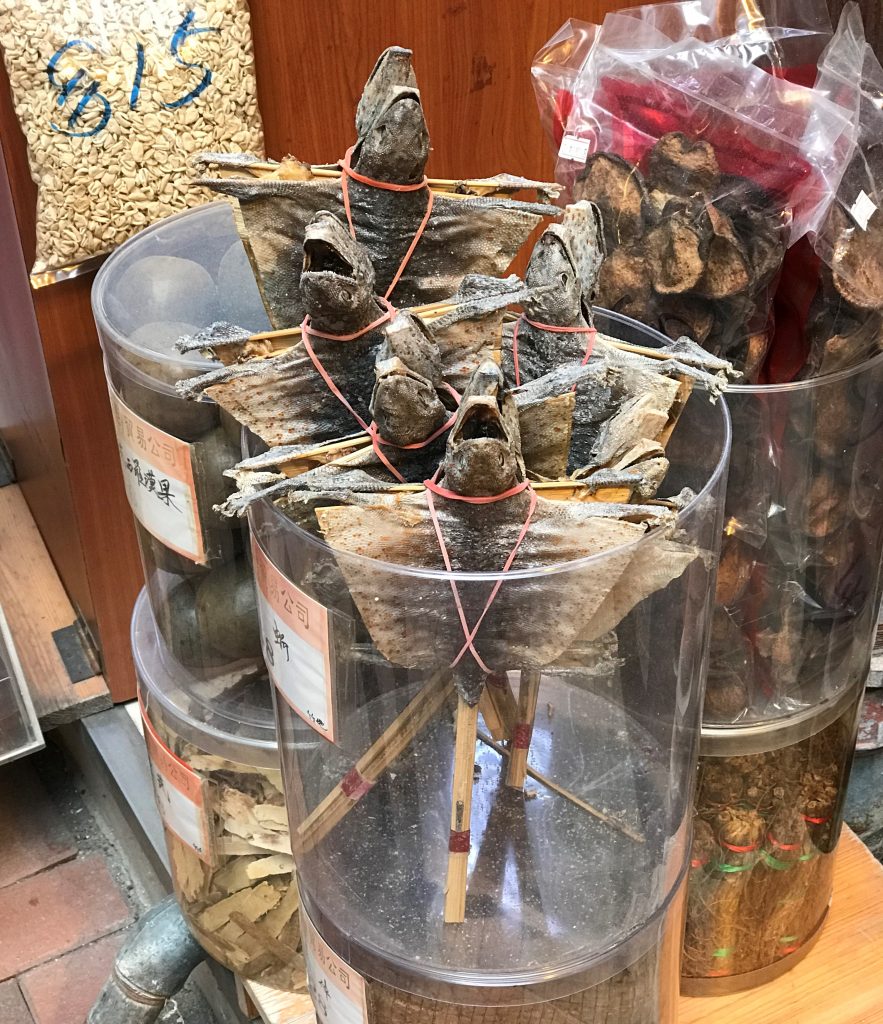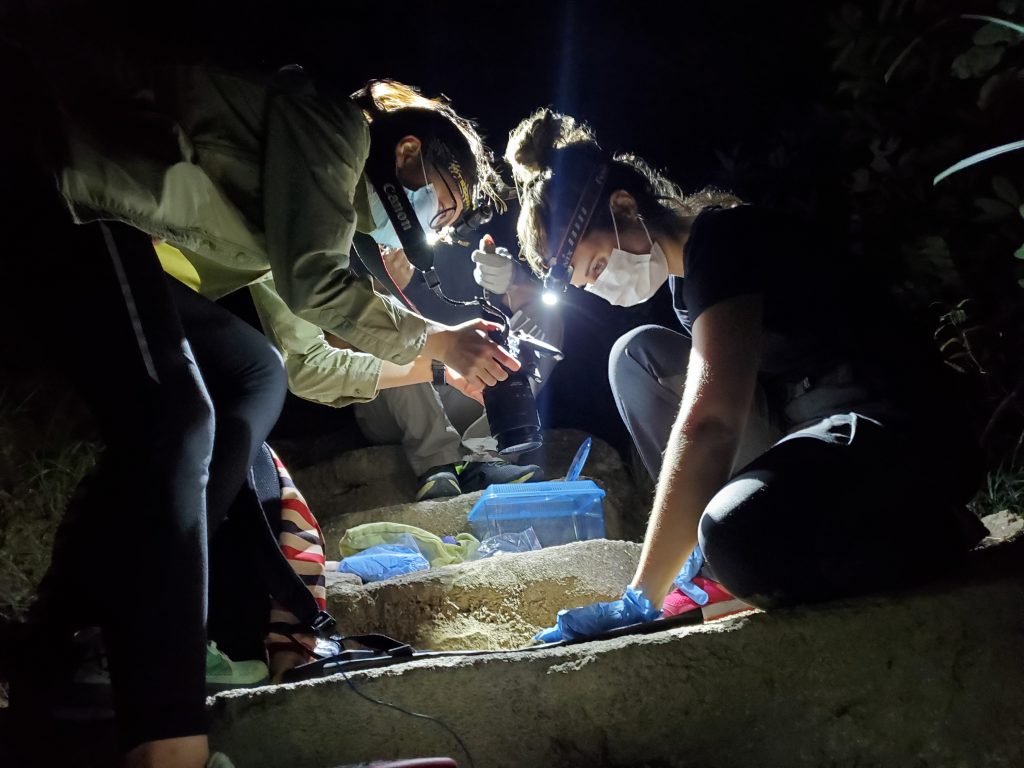November 2022 | Volume 24 No. 1
The Greedy Gecko Trade
Tokay geckos are an eye-catching reptile – large and colourful, and said to possess therapeutic benefits in traditional Chinese medicine (TCM). These qualities have made them high in demand both as pets and especially as an ingredient in TCM. But despite their ubiquity across Asia, the demand may be threatening their sustainability.
This is the conclusion of a study from the Conservation Forensics Lab of the School of Biological Sciences. Then-PhD student (now postdoc) Dr Pauline Dufour, under supervision of Dr Timothy Bonebrake and Dr Caroline Dingle of HKU and Dr Yik-Hei Sung of Lingnan University, conducted a detailed investigation of the impact of the gecko trade in Hong Kong and the origins of our local gecko population.
Millions of tokay geckos are exported from Southeast Asia every year and other evidence suggests they are being taken from the wild because there are no breeding facilities large enough to support such a trade, nor would this be practically or economically feasible.
“Events of poaching at large and small scales can have major implications on the long-term survival of small populations and decrease their genetic diversity,” Dr Dufour said. “Each individual gecko is cheap and not worth a lot of money, unlike a pangolin or other animal of high value. But that’s one of the reasons why I think it is threatened. It’s so cheap that people don’t consider it to be a species worth protecting.”

Dried tokay geckos on stick for sale in Hong Kong.
Lousy pets
Concern about the future of tokay geckos prompted their listing in 2019 under Annex Two of the Convention on International Trade in Endangered Species of Wild Fauna and Flora, which means permits are required for their trade. Hong Kong subsequently listed them as protected under local legislation. But there is still open trade and open discussion of trading the species across borders.
Dr Dufour led an investigation that collected tissue samples of seven populations of geckos from the wild in Hong Kong and from dried individual geckos sold in TCM shops. She then did genetic analysis that found nearly all the TCM tokays originated from across Southeast Asia, not Hong Kong, which showed that they were being traded here. “Essentially, the demand for tokays in Hong Kong and China is resulting in exploitation in countries across the region,” she said.
In the wild, she found two subspecies of tokay geckos – Gekko gecko gecko and Gekko gecko reevesii, with the latter genetically closer to populations in southern Mainland China. She also looked at the live pet trade, which is flourishing on places like Facebook, and talked to pet owners. One group of geckos from the wild that she looked at was genetically closely related to exotic geckos released in the wild in Florida, suggesting they were both exported from Thailand as a result of the international pet trade.
“Tokay geckos are very pretty but they’re not good pets. They bite and it takes them a long time to get acclimated. If they are in an enclosure, they are probably going to attack each other because they’re quite territorial,” Dr Dufour said.

The team working in the field, taking measurements and photographs of a tokay gecko.
Unsustainable rate of exploitation
The geckos are popular in TCM for kidney and lung ailments and at one point were purported to be helpful against AIDS, although this was later disproved. Dr Dufour said interviews with local shopkeepers found there has been no major increase in demand in the wake of COVID-19, although the price of tokay geckos has started to rise both in Hong Kong and the Mainland.
In any case, the protections in Hong Kong for tokay geckos are confusing. They can be bought and sold, both dead and alive. While it is not legally permitted to catch them in the wild, this is difficult to prove.
“The tokay gecko isn’t necessarily a rare species,” Dr Bonebrake said, “but the question is whether they will become rare because of the high rate of exploitation. That makes it a challenge in conservation. One of my concerns is that the current rate of exploitation is likely not sustainable unless we do something about it.”
Dr Dufour called for greater collaboration across borders to manage the tokay gecko trade before it is too late and that the weight of responsibility should not be loaded onto Indonesia and other developing countries.
“Some countries have regulations in the pipeline. And in Mainland China it’s now listed and there is technically protection in Hong Kong. Hopefully these changes will start to have a positive impact,” she said. Her findings also provide a baseline for future monitoring.
Essentially, the demand for tokays in Hong Kong and China is resulting in exploitation in countries across the region.

DR PAULINE DUFOUR

